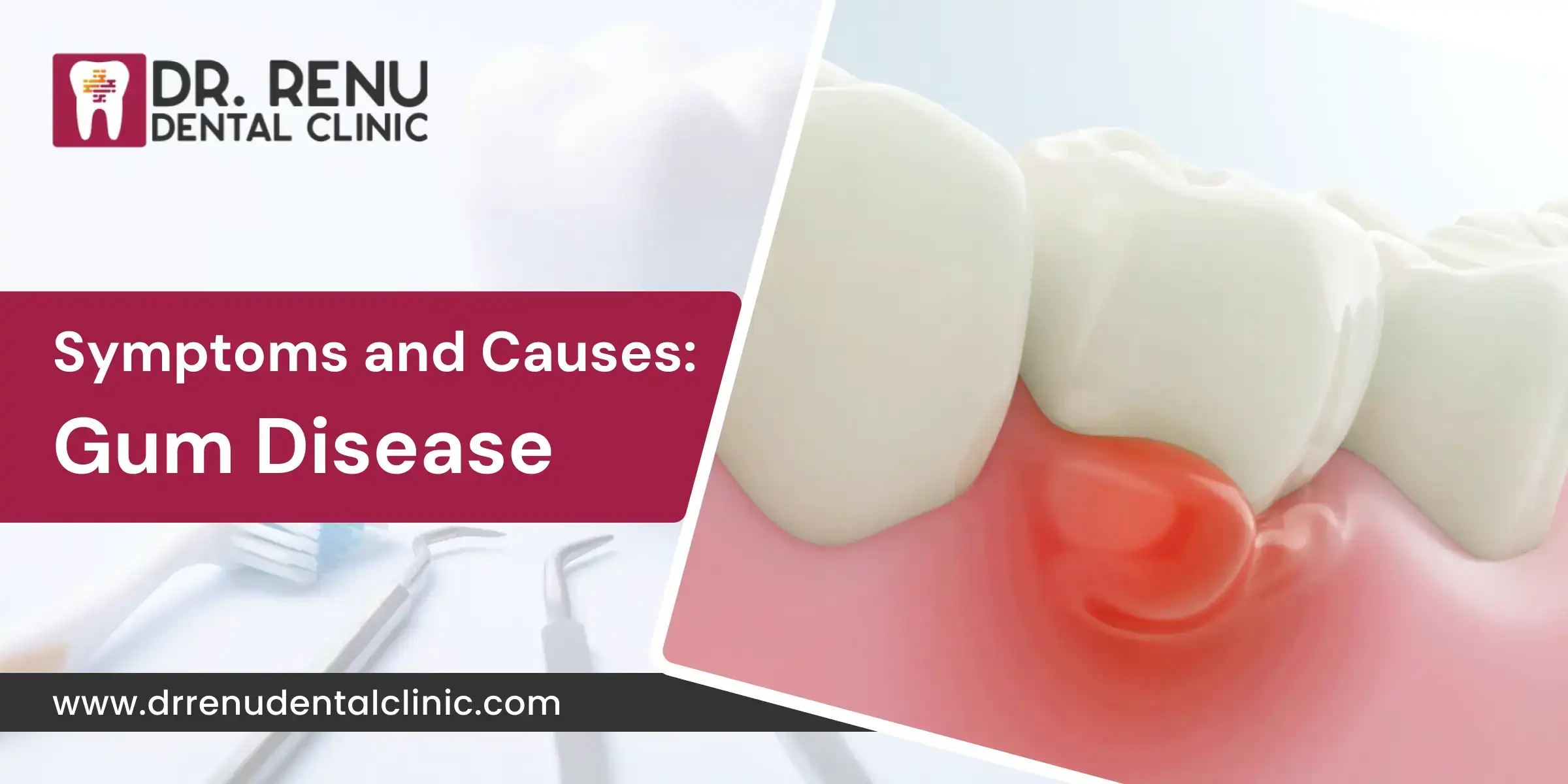
Gum Disease Symptoms and Causes
Gum disease is a very common condition that affects people of all ages. Understanding the symptoms and causes of gum disease can ensure proper treatment. Gum disease symptoms range from mild to severe, but there are obvious signs if you look out for them. Ignoring these symptoms may lead to complications such as tooth loss. This article will explore common symptoms, causes, and ways to identify gum problems early.
Symptoms of Gum Disease
The symptoms of gum disease typically begin with subtle signs that may be easy to overlook. Common indicators include red, swollen, or tender gums that bleed easily, especially when brushing or flossing. You might also experience persistent bad breath or a strange taste in your mouth. As gum disease progresses, teeth may become loose or sensitive, and chewing can become painful. The second indication is receding gums, in which the gum line pulls away from the teeth, making them appear longer.
More advanced stages may cause pus formation between the gums and the teeth; this is when an infection will be present. Other signs that may be found include a shift in how the teeth fit together as you bite and black triangular spaces between the teeth. Recognizing these gum disease symptoms early is essential to prevent the condition from worsening.
Causes of Gum Disease
The causes of gum disease are mainly associated with the formation of plaque on your teeth and gums. Plaque is a sticky film of bacteria that forms after eating. If not removed by brushing and flossing, plaque can harden into tartar, leading to gum disease.
Smokers often suffer from gum disease, which lowers the immunological power of one’s body, thus giving it a hard time in terms of fighting infections. It is associated with genetic background, such as some people suffering from gum disease due to their genetic structure. Some other illnesses, such as diabetes or HIV/AIDS, can also increase the risk of suffering from gum disease.
Some medications, including oral contraceptives, steroids, and anticonvulsants, can contribute to gum disease by affecting your gum health. Additionally, hormonal changes, especially in women, may predispose gums to infections. Finally teeth grinding and poor dental hygiene are significant contributors for gum problems.
How to Identify Gum Problems
Early detection of gum disease can help you take the necessary steps before it becomes more severe. How to identify gum problems is essential for maintaining good oral health. If you notice any of the following signs, it’s a good idea to consult with a dental doctor:
- Bleeding gums when brushing or flossing
- Bad breath that doesn’t go away
- Swollen or tender gums
- Teeth that appear longer due to receding gums
- Pain while chewing or biting
- Loose teeth
If you notice these symptoms, don’t wait for them to worsen. Early intervention can save your teeth and improve your overall health.
Looking for a Dental Doctor in Jaipur?
If you’re experiencing symptoms of gum disease, it’s essential to consult with a skilled dental doctor in Jaipur for an accurate diagnosis and treatment plan. Dr. Renu Chaudhary, an experienced consultant prosthodontist and dental implantologist, provides exceptional dental care at Dr. Renu Dental Clinic in Jaipur. With over 15 years of experience in cosmetic and general dentistry, Dr. Renu is dedicated to helping patients achieve and maintain healthy, beautiful smiles. Her clinic offers comprehensive treatments, including gum care, smile makeovers, dental implants, and more.
For expert care and personalized treatment plans, schedule an appointment at Dr. Renu Dental Clinic today and experience world-class dental services tailored to your needs.
FAQs
- Can gum disease be reversed?
In its early stages, gum disease (gingivitis) can be reversed with proper treatment and improved oral hygiene. However, more advanced stages (periodontitis) may require more extensive treatment to manage the symptoms and prevent further damage.
- How often should I visit the dentist to prevent gum disease?
Regular dental check-ups every 6 months are essential to detect early signs of gum disease. Professional cleanings help remove plaque and tartar buildup, reducing the risk of gum problems.
- Are there any home remedies for gum disease?
While maintaining good oral hygiene at home is important, professional dental care is essential for treating gum disease. Your dentist can recommend proper techniques and treatments to address gum disease effectively.

